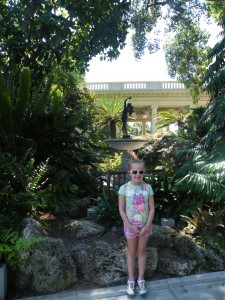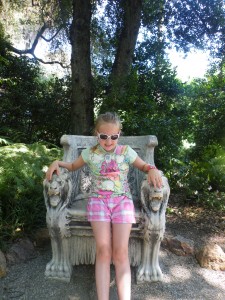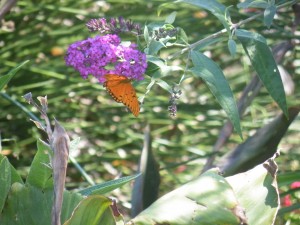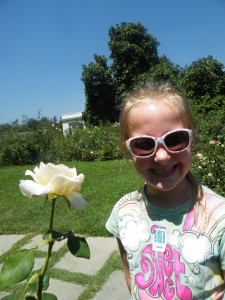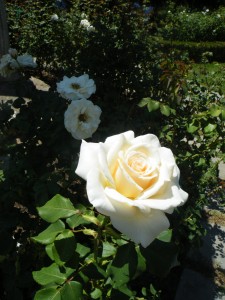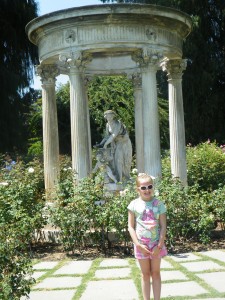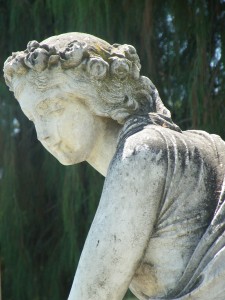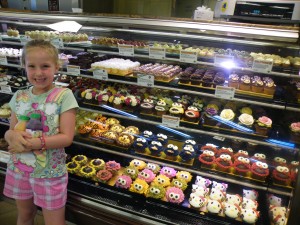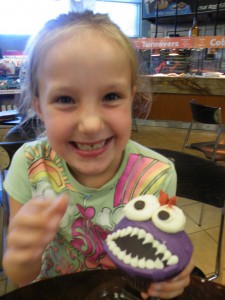Spontaneity doesn’t always work out. I like to keep a vacation itinerary loose; mix it up with old haunts and new ones and not necessarily know what I’m going to be doing that day. This year, we visited The Huntington Library and I decided we would just show up, wander the gardens and galleries of the very rich, and enjoy a lovely mother-daughter afternoon tea, which, for Anna, means piling tons of precious little cookies and cakes on to dainty plates.
For $21.50 (Anna’s admission was $6) we saw only a fraction of the estate (we simply tired out). Named after railroad magnate and fellow upstate New Yorker Henry E. Huntington, the “library” is a series of mini-museums spread across very well irrigated and manicured acres. The San Gabriel mountains watch over the estate. The museums are devoted to botany, science, art and books. Huntington left his hometown of Oneonta, New York, to follow the family railroad business in California (why does industry and innovation always move East to West? It keeps happening, from railroads to Facebook). The 18th century art collection is extensive and shows portrait after portrait of pale rich people staring. What interested me most is what the Huntingtons thought they should be collecting and sharing with a less enlightened public; that at the turn of the 20th century, this was how people were supposed to be wealthy. To be knowledgeable about 18th century French art was considered a privilege then and money was used to accrue evidence of this knowledge.
Wealth looks so different today. Warren Buffett still lives in the five-bedroom Omaha, Nebraska home he purchased more than a half century ago. Sam Walton prided himself on driving an old pickup truck. Bill Gates owns some Michelangelo originals (and we’re not invited to his Seattle lakeside home to view them) but he also gives billions to support vaccination efforts in Africa. Hygiene and public health were still embryonic concepts at the turn of the 20th century. Today, fortunate individuals donate huge sums to protect people from bacteria and viruses. Philanthropy has evolved.
These were my thoughts as we wandered. Then we were thirsty and hungry, but unfortunately, the impromptu afternoon tea did not happen. I didn’t make a reservation thinking that Wednesday would be a slow day at The Huntington Library. I was quite wrong. Tourists were everywhere and there was a long queue for the purchase of a commemorative stamp. The tea room didn’t have a table until 2:45. We walked through the gardens some more under a sweltering Southern California sun. There was not a cloud in the sky and even with a hat on, I was feeling cooked. Pooped, we got into the car, blasted on the air conditioning, and headed to Whole Foods in Pasadena for a very late lunch.
Monster cupcakes from Whole Foods helped low blood sugar levels and brought big smiles on a hot day.
